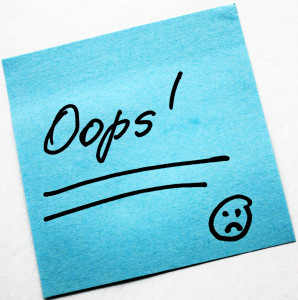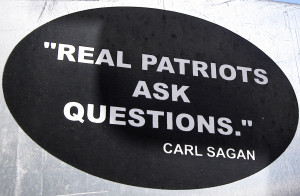 It comes up time and again these days… Has political correctness gone too far? Is censorship running rampant? Are we inhibiting meaningful contributions to society with PC run amok?
It comes up time and again these days… Has political correctness gone too far? Is censorship running rampant? Are we inhibiting meaningful contributions to society with PC run amok?
We live in a consumerist culture. Each of us acts as citizen and consumer on a daily basis. What we consume is dictated largely by popular media…and by Facebook, Twitter, Tumblr, Instagram, Pinterest, or any of the other social avenues that permit us all to interact. When we comment on an article or a friend’s post, we reveal much about ourselves in our role as consumer, but perhaps much more about ourselves in the role of citizen.
We’re no longer speaking in a quiet voice to friends gathered around a table in a private home, we’re stridently broadcasting our views for the entire world to see. It’s intimidating, isn’t it? It’s a little scary to think that an off-hand comment could destroy our lives. It would be comforting to blame the PC police for that possibility of public shame, but is it really their fault? And if it isn’t, how can we stave off the horrors of internet-wide humiliation?
Perhaps I was raised in an exceedingly old-fashioned manner. My grandmother was born in 1907, and she brought me up to be a perfect little Southern gentleman. I read Emily Post’s guides and balanced a book on my head. To me, a faux pas is something to be apologized for–sincerely–and moved on from without fuss. If you’re caught with your foot in your mouth, the appropriate response is, “Excuse me, I believe I was mistaken. Please forgive me,” and you exit the situation with what grace and dignity you can.
Best manners means permitting someone who has supposedly sinned against you to get off lightly when they make the proper apology. Best manners means instantly providing that apology should you be in the wrong…and being in the wrong doesn’t mean you are objectively incorrect; it means you have made someone else uncomfortable or caused them distress. Social graces are about ensuring we are all comfortable and on even footing. A person of manners does not seek to express themselves at the expense of those around them.
How very rude.
 This means that we need to stop the cycle of public shaming. When someone says something wrong, rather than leaping upon them and throwing stones, perhaps realize, “There but for the grace of [deity/luck/happenstance] go I.” None of us–not even me, exceedingly liberal, queer, trans*, and underprivileged me–are exempt from the probability of unflattering, unworthy thoughts or responses. None of us are innocent of laughing at an offensive joke or even repeating one or two. We’re all just humans, mere mortals, who experience schadenfreude and moments of extreme tackiness or petty joys. That’s human nature.
This means that we need to stop the cycle of public shaming. When someone says something wrong, rather than leaping upon them and throwing stones, perhaps realize, “There but for the grace of [deity/luck/happenstance] go I.” None of us–not even me, exceedingly liberal, queer, trans*, and underprivileged me–are exempt from the probability of unflattering, unworthy thoughts or responses. None of us are innocent of laughing at an offensive joke or even repeating one or two. We’re all just humans, mere mortals, who experience schadenfreude and moments of extreme tackiness or petty joys. That’s human nature.
The difference between human nature and culture is that culture is civilized, or is meant to be. It’s strange to me–perhaps strangest in all of this–that those who profess themselves most conservative and supposedly most old-fashioned are those who are quickest to throw away manners and civility. It has never been acceptable in polite society to purposefully make others uncomfortable.
Perhaps this disconnect has emerged as polite society has grown to incorporate diversity. Where once our culture considered poor, queer, trans*, PoC, and non-Christian persons easily excluded from the ongoing cultural discussion, now those voices are given an increasing foothold. Women are finally ascending to a state of relative equality to their male counterparts. White, nominally Christian, middle class cis* males no longer dominate every conversation. Resultantly, those whose feelings were not originally incorporated in our cultural consensus on politeness are now–belatedly–being taken into account. And, perhaps unshockingly, some white, nominally Christian, middle class cis* persons feel inhibited by this new normal, which comes with a whole new set of rules by which the mannerly and polite must play or risk becoming pariahs.
It’s quite a game changer, isn’t it? And it must seem frustrating to those who consider themselves already very “classy” and to be of “good breeding”. If they learned please and thank you and never fart without saying excuse me at the same volume as the offending flatulence (that is the correct post-fart protocol), then why do they need to learn all these new rules too?
There is, following that question, an implied, “When those people don’t even really matter.”
Ah, there’s the rub.
Political correctness is mannerliness for a new generation. College students are accepting it and taking it–at times–to an extreme, or so the media reports. Even those–like stand-up comics–who traditionally push the envelope and leave mannerliness flapping in the breeze behind them like unexcused farts are feeling the push-back. Even authors of transgressive literature are protesting it. But to blame political correctness is to miss the point entirely.
We are not censored by political correctness. We have none of us lost the right to fly the Confederate flag in our own homes nor the right to use profane language. We are still entitled in the USA to speak our minds. However, we must then deal with the repercussions.
 This is how it has always, always been. Perhaps previously your particular social group wasn’t subject to such harsh criteria. Perhaps in the past, your position as part of the dominant social faction all but guaranteed laughter at your now-scorned jokes or murmurs of agreement in response to your ideological statements. And now, faced with a new norm that does not recognize your dominance, faced with the inhibitions previously suffered only by the outsiders, you cry CENSORSHIP only to realize that no one is halting your cry. Censorship is not an accurate word for what ails you.
This is how it has always, always been. Perhaps previously your particular social group wasn’t subject to such harsh criteria. Perhaps in the past, your position as part of the dominant social faction all but guaranteed laughter at your now-scorned jokes or murmurs of agreement in response to your ideological statements. And now, faced with a new norm that does not recognize your dominance, faced with the inhibitions previously suffered only by the outsiders, you cry CENSORSHIP only to realize that no one is halting your cry. Censorship is not an accurate word for what ails you.
It’s inhibition. It’s socially-sanctioned self-censorship to avoid giving offense. It’s realizing that you cannot say any and everything on your mind and expect a positive response.
I always thought that was called basic manners. Is your right to speak thoughtlessly more important than someone else’s right not to be insulted? Does your right to say exactly what you want at any moment trump the right of others to be comfortable? And does it go both ways?
As a poor, trans*, queer, liberal person living in small-town Texas, I’ve sat by and listened to innumerable conversations to which I could not politely contribute. I’ve held my tongue because my opinions would not persuade them, my lived experiences would be dismissed as irrelevant, and even my proven wisdom would be doubted. There are some conversations in which I simply do not belong and in which it would be rude to insert myself. Rather than barge in, run my mouth, and make everyone awkward and uncomfortable, I choose to remain silent and wait for a conversation in which I can participate. Do I consider such people boors? Of course. But I don’t interfere if the majority present are enjoying that conversation because making it all about me and my comfort would be rude.
Maybe, if you’re part of the social majority, you’re encountering more and more conversations that are not about you. Perhaps this is difficult to accept, as until very recently, everything was about you. As someone who has been excluded from damn near everything for most of his life, allow me to offer you these words of advice and condolence:
You’ll live. As Mark Twain once said, “It is better to keep your mouth closed and let people think you are a fool than to open it and remove all doubt.”





One Comment: